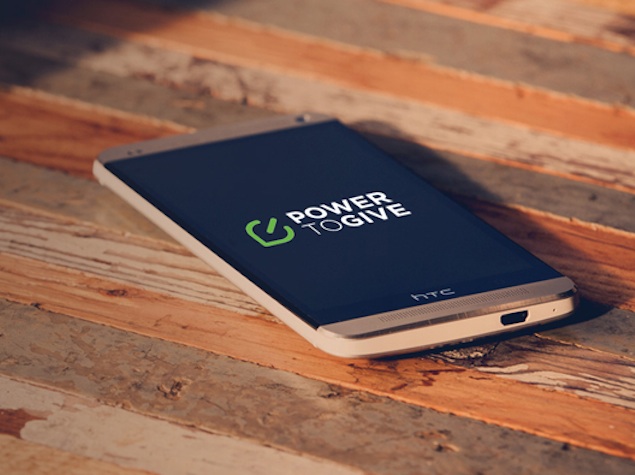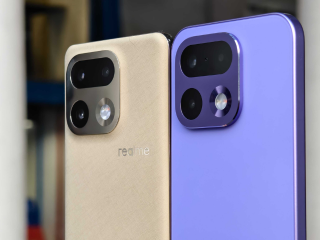HTC Power To Give initiative aimed at helping find cure for AIDS, Alzheimer's

On the official HTC blog, Social Community Manager, Laura Kimball, writes "With HTC Power to Give you can change the world with your smartphone as you sleep. One needs to download the app from the Google Play store."
Kimball adds that once the smartphone is connected to a charger when a user goes to bed, PTG begins to operate after the phone has charged up to 85 percent. The phone is then said to join an enormous secure computing grid, donating a small proportion of its unused processing power. This grid in turn powers research projects by compiling and aggregating scientific research data needed to solve the problems.
Kimball further mentions in another blog entry that HTC has 'teamed up' with Dr. David Anderson, one of the founders and leaders of volunteer computing initiatives for PCs, to develop a volunteer computing platform for Android smartphones based on the BOINC PC platform, a project at University of California-Berkeley. BOINC, middleware platform, is used by research organisations that conduct crucial research.
According to HTC even if one million smartphones connect to PTG, they would provide one petaflop of processing power, which as blog the mentions, would qualify as the 31st most powerful supercomputer in the world. HTC claims the power generated might just help find cures for diseases like AIDS, Alzheimer's and cancer, or generate solutions for providing clean water for people without an access to it.
Of course the HTC Power To Give initiative is not the first of its kind, but probably the first by a major smartphone manufacturer. Other distributed processing networks aimed at solving complex problems or crunching massive numbers exist, such as Folding@Home and SETI@Home, and have in the past leveraged the processing power of smartphones as well.
The HTC Power To Give app is available as a free download for select devices that run Android version 4.3 or later. It can be downloaded from the Google Play store. A list of devices currently supported by the HTC Power To Give app include supporting HTC One, HTC One max, HTC One mini, HTC Butterfly, HTC Butterfly s, Droid DNA by HTC, Google Nexus 5, Samsung Galaxy Note 2, Samsung Galaxy Note 3, Samsung Galaxy S3, Samsung Galaxy S4, Samsung Galaxy S4 Active, Samsung Galaxy S4 mini, Sony Xperia Z, Sony Xperia Z1, Sony Xperia Z1 Compact, Motorola Moto X, Motorola Moto G, Droid Maxx by Motorola, LG G2 and Lenovo K910.
Catch the latest from the Consumer Electronics Show on Gadgets 360, at our CES 2026 hub.
Related Stories
- Samsung Galaxy Unpacked 2025
- ChatGPT
- Redmi Note 14 Pro+
- iPhone 16
- Apple Vision Pro
- Oneplus 12
- OnePlus Nord CE 3 Lite 5G
- iPhone 13
- Xiaomi 14 Pro
- Oppo Find N3
- Tecno Spark Go (2023)
- Realme V30
- Best Phones Under 25000
- Samsung Galaxy S24 Series
- Cryptocurrency
- iQoo 12
- Samsung Galaxy S24 Ultra
- Giottus
- Samsung Galaxy Z Flip 5
- Apple 'Scary Fast'
- Housefull 5
- GoPro Hero 12 Black Review
- Invincible Season 2
- JioGlass
- HD Ready TV
- Laptop Under 50000
- Smartwatch Under 10000
- Latest Mobile Phones
- Compare Phones
- iQOO Z11 Turbo
- OPPO A6c
- Samsung Galaxy A07 5G
- Vivo Y500i
- OnePlus Turbo 6V
- OnePlus Turbo 6
- Itel Zeno 20 Max
- OPPO Reno 15 Pro Mini 5G
- Lenovo Yoga Slim 7x (2025)
- Lenovo Yoga Slim 7a
- Realme Pad 3
- OPPO Pad Air 5
- Garmin Quatix 8 Pro
- NoiseFit Pro 6R
- Haier H5E Series
- Acerpure Nitro Z Series 100-inch QLED TV
- Asus ROG Ally
- Nintendo Switch Lite
- Haier 1.6 Ton 5 Star Inverter Split AC (HSU19G-MZAID5BN-INV)
- Haier 1.6 Ton 5 Star Inverter Split AC (HSU19G-MZAIM5BN-INV)

















